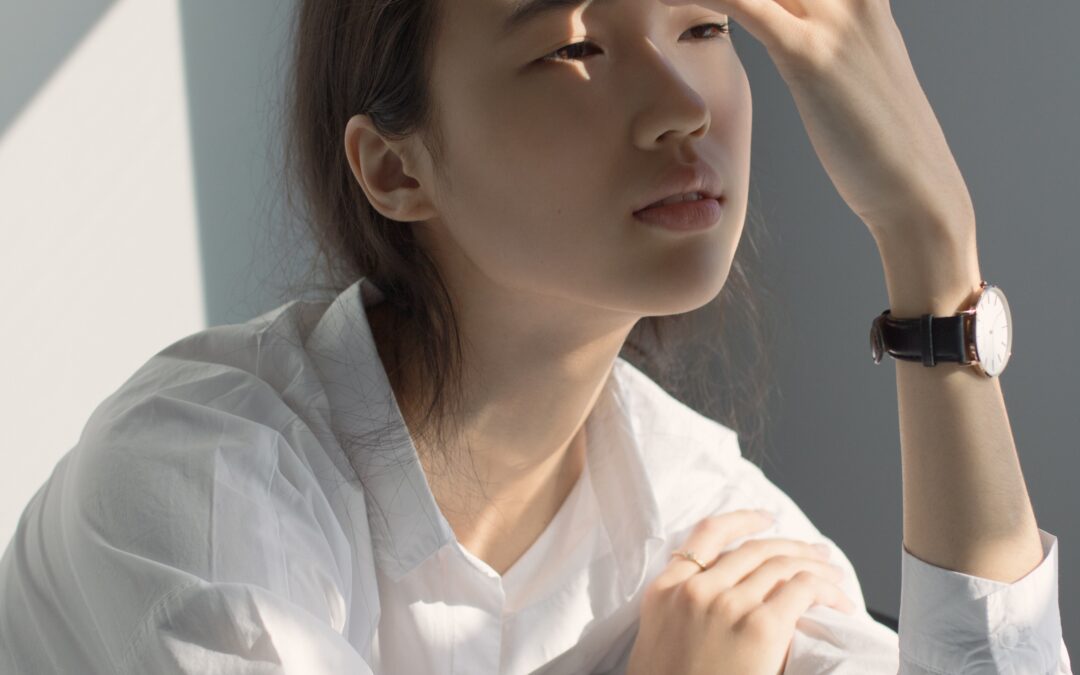
by Michael | Dec 4, 2023 | Blog
Choosing your wedding suppliers is a potential minefield.
Which suppliers will you actually need? What sort of budget can you allocate to each one? How do you choose between suppliers of the same (or similar) articles? How do you know they will be reliable?
Necessary Suppliers
Only you can decide which suppliers you are going to engage. Among others, you may need a venue, an officiant, a photographer, florist, DJ or musicians, entertainment, caterers, make-up artist, hairdresser, wedding planner – and the list goes on!
Once you’ve decided what you’re going to need, discuss your budget. This may be ‘chicken and egg’ – how do you know how much to allocate to each supplier?
You may have to ask around, before you can fix your budget, but how do you choose between suppliers?
A few answers.
Choosing between suppliers
Personal experience of a supplier (or knowing somebody who has used one) can help you select between two suppliers with similar offerings.
Otherwise, go to their website, and see if that helps you. The “reviews” or “testimonials” page may be useful. You can get a flavour of what the supplier might offer and how they would deliver it.
Make contact with the likeliest suppliers in each category. A personal chat (either in person, by Zoom, say, or even on the phone) may inspire you sufficiently. But be prepared with a list of questions.
You’ll need to cover: availability, cost, Ts & Cs (what exactly is included?), cancellation policy and (where appropriate) how they see your vision working.
:Reliability
Of course, there are no concrete guarantees out there, but gut instinct may help you decide on your supplier. You’d also be advised to see what experience they have. What makes them confident they can offer great service to you?
Hopefully, you easily find suppliers who are pleasant and professional. You need to feel confidence in them, and, if not, look elsewhere.
Once you’ve paid your deposit, keep in touch with your supplier.- but don’t nag! By all means check up that they are going in the right direction, but don’t turn them against you.
Do your due diligence, and you’ll have peace of mind on – and leading up to – your big day. It’s worth hunting out the best professionals.
If you need a top celebrant, I do know one you could have a chat with!
Photo: aiony-haust-xCQm5_9aro0-unsplash
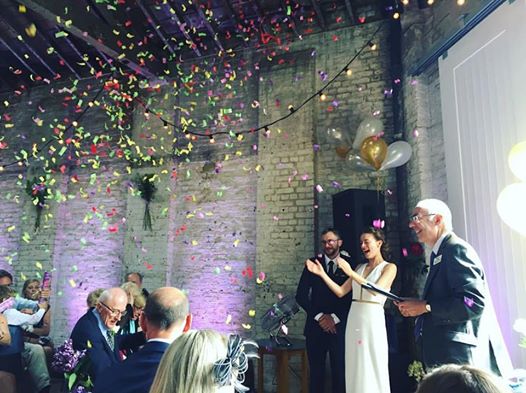
by Michael | Nov 28, 2023 | Blog
My blog dated September 13th 2022 covered the proposals set before government for wedding law reform.
After considerable deliberation, the Law Commission had presented these proposals in July 2022. An interim response was promised within 6 months and a final response within one year.
Would it be a surprise to know that not even an interim response has been issued yet?
To reiterate: many of our current wedding laws date back to 1836 when things were very different. Piecemeal amendments had followed, but these had created “unsatisfactory confusion and concerns that the law is not representative.” [Siobhan Baillie, MP]
Marriage is an important institution – for individuals and society as a whole. It remains popular, even if ways to get married have become diverse.
It is important to encourage (not discourage) couples to marry – and thousands would welcome less complexity and bureaucracy. These are things the proposals offer.
The use of Independent Celebrants have been growing in popularity over the years They are a professional and committed body. There seems to be no reason why they cannot be trusted to conduct a suitable and respectful ceremony. And it’s the couple’s big day, so they should be able to celebrate it in the way that appeals to them and meets their spiritual needs.
It therefore makes sense to me (and not only me!) that reforms should involve the regulation of both independent celebrants and humanist celebrants. And it should be said that independent celebrants would welcome regulation, training and monitoring under the auspices of the General Register Office.
The government has other concerns too, of course, but these proposals have import too. They should not be put on the back-burner. A General Election is on the way, and soon activities will be election-related, and the wedding law proposals will be side-lined.
And if they are, will they even be resurrected by the new government?
I hope I can report good news to you – and imminently – but I’m not holding my breath!
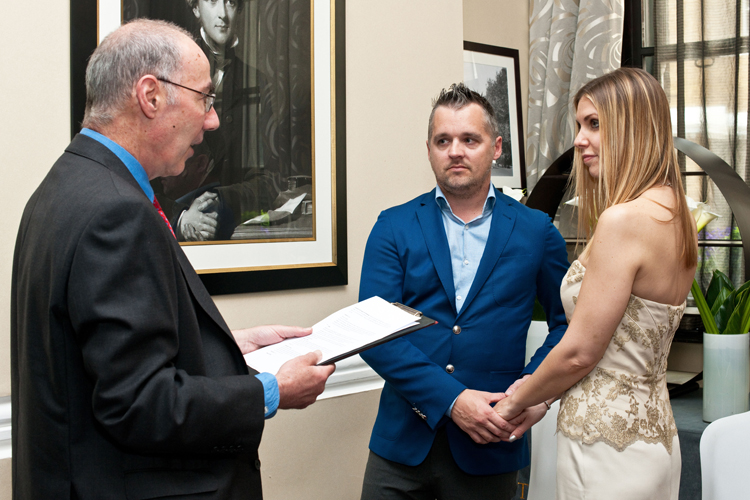
by Michael | Nov 20, 2023 | Blog
Exciting as it may be, planning your wedding can initially be bewildering.
Perhaps a little guidance at this point would be useful?
A good starting point would be to ensure that you are on the same page as your intended. So initial considerations would include date and venue of the ceremony, type of ceremony, budget and size of gathering.
That’s all before you bear in mind the entertainment, catering, dress, hair-do, make-up, photographers, flowers, planner and so on!
But this blog is about starting off, so we’ll limit ourselves to that alone, shall we!
Topics
Looking at those first points, I probably don’t need to point out that you may need to be willing to compromise with your intended (and/or anybody who is financing your event). You all need to communicate and not make assumptions. Keep each other in the picture. Don’t make alterations independently.
Budget
What you can spend is usually the tail that wags the dog!
Once you have agreed it, stick to the amount. You may have to juggle a bit (sometimes you can offset overspend, if there’s a saving or two down the line).
You’ll have to be clear how many people you invite (and to which parts of the day, if appropriate). That’s often a sticky one! Be flexible.
You may want to consider a DIY wedding, although hiring professional services can do such a lot for your peace of mind.
Date
The date is obviously important. You probably need to plan for at least a year in advance. Avoid major holidays and festivals (like Christmas or Valentine’s Day – or even the summer season). They can often be dearer than at other times.
.Ceremony type
You’ll need to agree on whether you want religion at all in your service, and, if so, to what extent? That will impact on booking a church (or whatever) and minister. If not, you will have to book registrars (either at their office or at certain venues). Alternatively, but in addition to registrars, you can go with a civil celebrant. That way, you can have a traditional or wacky ceremony (or mixture).
Venue
This is an area where you need to do your homework. You’ll have to visit the venue and discuss exactly what they can offer you. Most importantly, you must love the venue!
Practical Help
I cover this whole area in my book “Your Wedding Guide” (by Michael Gordon), which is still available on Amazon at a giveaway price (about £5)!
Or feel free to contact me for advice.
Photo’ Victor Shack
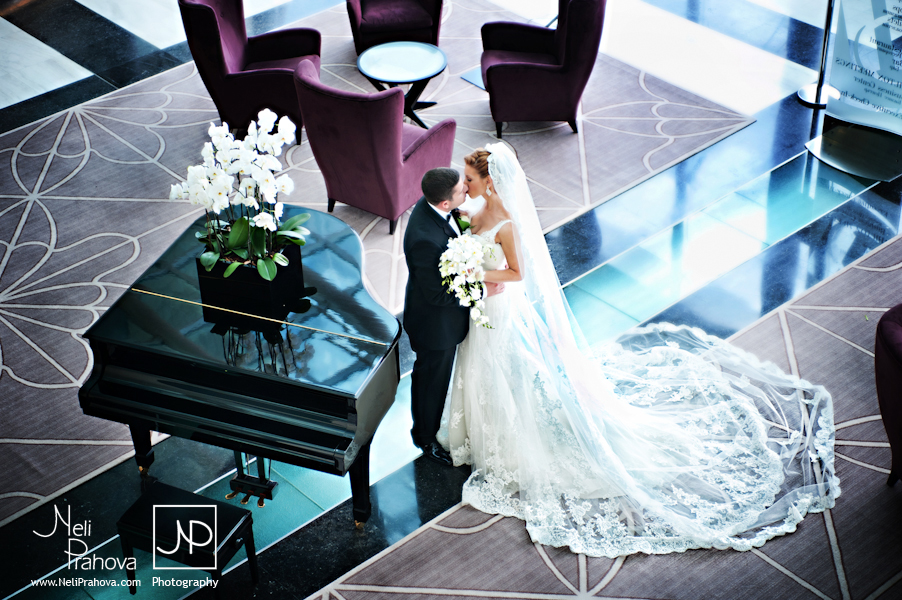
by Michael | Nov 6, 2023 | Blog
Music at weddings seems almost a given. The music adds to the atmosphere as well as covering potentially uncomfortable silences. It can be mood-changing and clearly has a lot of significance for a great many people.
So, when planning your wedding, you will want to consider the music quite carefully.
Will you want music for the ceremony and/or reception? Will you use a live band or a disco, or even a player operated by a family friend?
Live Music?
Having a live band can add considerably to the atmosphere. They can gauge and respond to their audience, and can set the tone. They can react to the unexpected (which can happen!).
All being well, you can rely on them, particularly if you know people that have used them. Or if you’ve heard them for yourselves.
The down side may be that they could be expensive. However, once you have agreed the programme (or style), you should be able to relax and get on with other things.
Nowadays, with the progress of technology, the quality of recorded music can be more than acceptable. Obviously, there may be issues, if machinery goes awry. The DJ may be able to play some music for you for the ceremony, if you want that. Just ensure you agree it all in advance.
Ceremony or Reception?
Opinions vary about music during the ceremony, but usually agree that you will want some quiet, middle-of-the-road music playing as the guests enter. If there’s a procession, stately or romantic music might be chosen. You’ll want to ensure that it lasts long enough. If there’s to be a certificate-signing, music would also be appropriate (probably, fairly restrained). Finally, you may well want something rousing, as the couple leave the room.
You can have traditional music (such as “Here Comes the Bride” or Pachelbel’s “Canon”) or a march, but there’s nothing to stop you choosing “your” song or, simply, a favourite piece of music.
.Music does not have to be religious at all (although it can be). Nor does it have to be serious. It can reflect the couple’s beliefs or personalities.
So, thought clearly needs to go into the music choice(s). The music can add such a lot. It can excite or relax, increase tension, bring a smile to faces – and, of course, cover a silence.
Most of all, music can add significantly to the character and atmosphere of your ceremony.
Let me help you with your ceremony as well as its music.
.
Photo: Nelly Prahova
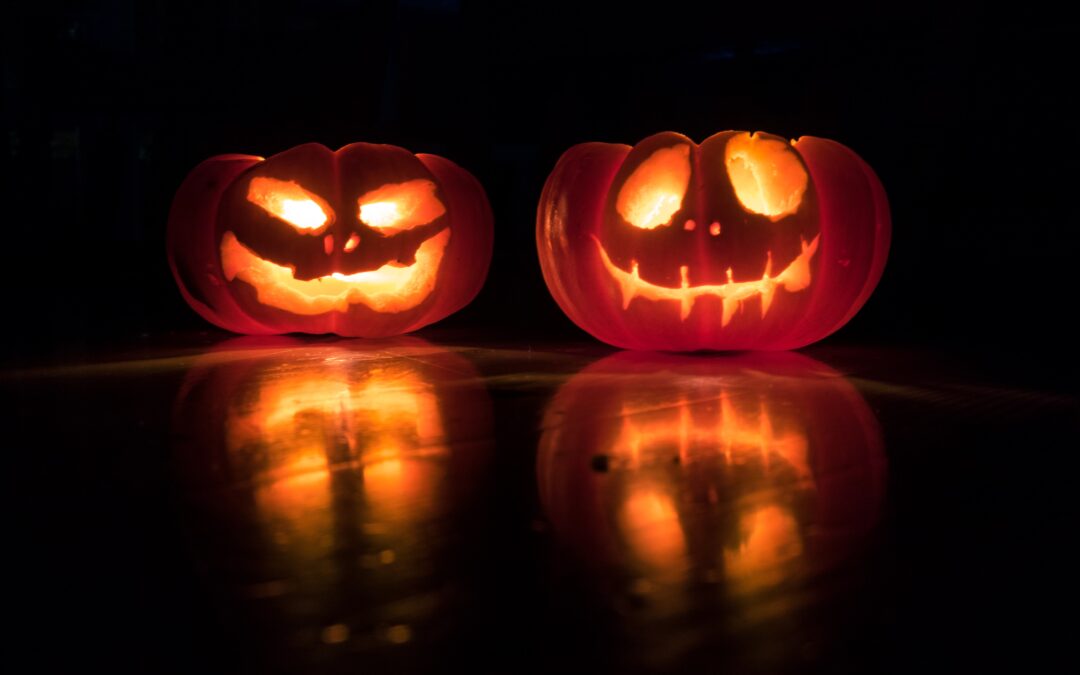
by Michael | Oct 30, 2023 | Blog
It must be difficult to be unaware of the fact, but Halloween is upon us!
Perhaps you received a “trick or treat” visit or two at the weekend? There may be more to come tonight.
Ignore it, if you wish, but Halloween has become a fixed part of our calendar.
Have you ever considered how it began? And how it became what it is today?
Beginnings
Halloween was originally an offshoot of a Celtic festival called Samhain. It actually dates back some 2,000 years. It marked the end of summer and the harvest. It also marked the onset of the cold, dark winter, as well as the boundary between the world of the living and that of the dead.
According to ancient Celtic belief, on the night of 31st October ghosts of their dead would revisit the world. So, to ward off any evil spirits that might be roaming around, large bonfires were lit across villages. The priests (Druids) would have led the celebrations. They also ensured that the glowing embers of the bonfire were used to relight the hearth fire of each house. This would protect and heat the people during the long, cold, dark winter months to come.
Changes
When the Christians arrived in Britain in the late 6th century, of course they brought their festivals with them. Among these was All Hallows Day (or All Saints’ Day. This commemorates Christian martyrs.
In the 8th century this festival was moved to 1st November, probably to replace the Celtic Samhain.
Up-to-date
What had been Samhain became “All-hallows-even” and, eventually, “Hallow Eve”. Then it became “Hallowe’en” and “Halloween”. Now, it tends to be children-orientated. Apple-bobbing is still quite popular and then, influenced by American traditions, “trick or treating” has really taken off. Dressing up ghoulishly has become customary too.
The pagan aspects of Halloween have never totally been replaced. Many still believe that the spirit and physical world can come into contact at this time, and magic holds sway.
I’ve never yet performed a Halloween ceremony, but I’m game to do so next year! Let’s have a chat!
Photo by David Menidrey on Unsplash





